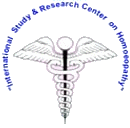Allergy
What does allergy mean?
It is a hypersensitive reaction to common, often intrinsically harmless, substances most of which are environmental. The allergic individual produces symptoms when exposed to these substances, which are harmless to non-allergic people. The main reason for this is that allergic people make a special type of antibody called immunoglobulin E (IgE), which can react with environmental substances in harmful way. These substances which lead to secretion of IgE antibodies are called allergens.
The reaction between allergen and IgE antibodies causes the release of substances such as histamine, which produce allergic symptoms in the skin, the nose, the eyes, the chest, etc. Allergy is an antigen-antibody reaction, manifested in several forms– anaphylaxis, asthma, hay fever, urticaria, angioedema, dermatitis, and stomatitis.
What are the most common allergens?
A wide variety of factors can act as allergens. Yet commonly involved are-
- Pollens (of trees, grass, and weeds)
- Moulds
- House dust
- Dust mites
- Bee stings
- Medications
- Foods, especially fish, eggs, milk, and nuts.
- Air pollutants
- Animal dander Bee and wasp stings may cause allergic reactions, with fatal results in rare cases.
- Additionally, feathers, wood, dyes, cosmetics, and perfumes etc.
The conditional factors
Mild allergies like hay fever are very common in the human population and cause symptoms such as red eyes, itchiness, and runny nose, eczema, hives, hay fever, or an asthma attack. Allergies can play a major role in conditions such as asthma. In some people, severe allergies to environmental or dietary allergens or to medication may result in life-threatening reactions called anaphylaxis. Food allergies, and reactions to the venom of stinging insects such as wasps and bees are often associated with these severe reactions.
For those who suffer from allergies, their immune system has mistakenly learned to remember a particular factor as potentially harmful, and responds with the familiar allergic symptoms. Weather can influence the timing and severity of the problems.
Types of allergies
- Seasonal allergies like hay fever are more common in the spring when plant pollination begins. Trees and grass cause most symptoms in the spring, while ragweed is responsible for the majority of autumn symptoms.
- Perennial allergies are usually year-round problems. Common triggers for perennial allergies include mould spores, pet dander and dust mite.
Symptoms of allergy
The manifestations of symptoms of allergy are manifold. They can be typically seen on the skin, eyes, respiration, intestinal tract, nose etc.
Skin related allergy symptoms
- Itching
- Redness
- Burning
- Eruptions, rashes
- Dry skin
Eye related allergy
- Itching from the eyes
- Redness
- Watery eyes
- Foreign body sensation in eyes
Respiratory tract related allergies
- Wheezing
- Cough
- Shortness of breath
- Congestion
- Feeling of suffocation
Allergic rhinitis symptoms
- Watery or runny nose
- Itching in the nacres
- Nasal congestion with stuffy nose
- Post nasal drooping
- Itching in the eyes and throat
- Redness of tip of the nose
- Watering from eyes may be associated with these symptoms
GIT related allergy symptoms
- Nausea
- Vomiting
- Diarrhoea
- Sick feeling
- Abdominal pain
Food related allergic reaction
Certain foods excite allergic symptoms that may be too severe and life threatening. It is called an anaphylactic reaction and symptoms include
- Wheezing
- Shortness of breath
- Severe fall in the blood pressure
- Difficulty in swallowing
- Swelling of lips, mouth and throat
- Stomach pain
- Hives
- Nausea
- Vomiting
Why do some people have allergies while others do not?
Allergic conditions often run in families. The increased risk of allergy can be passed from parent to child (genetic inheritance). Asthma and eczema are commoner in these families. But specific allergies (like fish allergy) are not of such character. Those people who have the predisposition to develop allergy are said to be ‘atopic’. Atopic people often produce the allergy antibody Immunoglobulin E (IgE) in larger quantities than people without atopy. This IgE is measured by allergy tests.
How is allergy diagnosed?
Once a diagnosis of asthma, rhinitis, anaphylaxis, or other allergic disease has been made, there are several methods for discovering the causative agent of that allergy. The best ones with high specificity and sensitivity for assessing the presence of allergen-specific IgE antibodies are
- a skin prick test or
- an allergy blood test.
The other methods of testing for specific allergens include
- challenge testing
- elimination/challenge testing
- patch testing
Conventional Treatment
Traditional treatment and management of allergies consisted simply of avoiding the allergen in question or otherwise reducing exposure. However, while avoidance of allergens may reduce symptoms and avoid life-threatening anaphylaxis, it is difficult to achieve for those with pollen or similar air-borne allergies.
Several antagonistic drugs like antihistamines, glucocorticoids and epinephrine (adrenaline) are used to block the action of allergic mediators, or to prevent activation of cells and degranulation processes. The treatment process never leads to cure and can only prevent very limited types of allergies.
Why homoeopathy?
Homeopathy is one of the most popular holistic systems of medicine. The selection of remedy is based upon strict individualization and symptoms similarity by using holistic approach. This is the only way through which a state of complete health can be regained by removing all the sign and symptoms from which the patient is suffering. The aim of homeopathy is not only to treat allergy but to address its underlying cause and individual susceptibility.
As far as therapeutic medication is concerned, several well-proved remedies are available for homeopathic treatment of allergy. Homoeopathic treatment has been shown to significantly reduce allergic symptoms and increase the person’s immunity to external influences.



